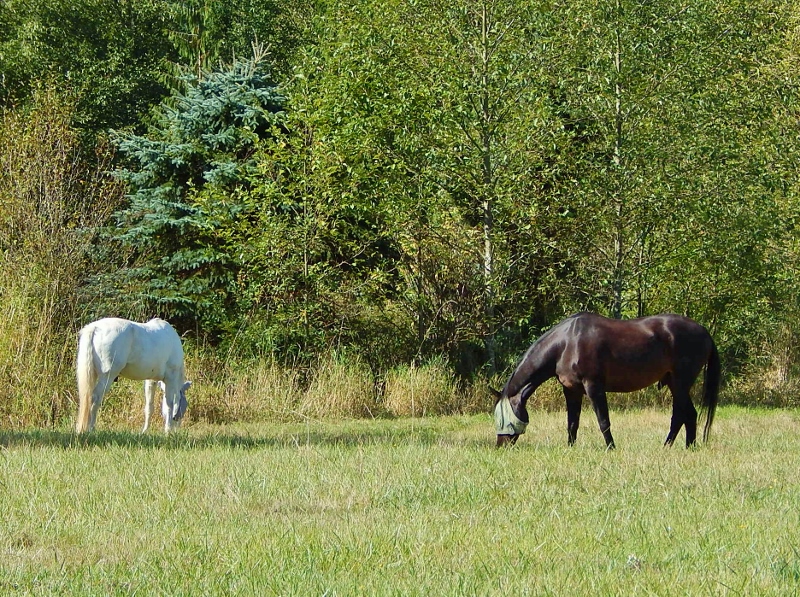Protect Yourself When Buying or Selling Horses
by Allison Trimble, Willfully Guided Horsemanship
One of the most highly debated topics surrounding horse sales is the pre-purchase exam. Should I do one? How do I pick a vet? What do I do with the results? These can all be tough questions, especially when a person has finally found a horse that they believe is “the one.”
What is a pre-purchase exam? This is the process where a veterinarian examines a horse for health and soundness prior to a sale. Standards of examination, duration and required components (tests) can vary wildly from vet to vet and between disciplines. Typically, a cursory pre-purchase will include an overall health exam, flexion tests, observation of the horse moving on a lunge line, and often radiographs. The extent and detail of tests is dependent on the buyer and the costs vary.
What will a pre-purchase exam tell me? If there are serious soundness or health issues with the horse this exam will discover them. The tricky part is what does it mean? A serious soundness issue makes a decision easy, but what about those “grey” areas? A vet is unlikely to “pass” or “fail” a horse. They more often point out potential issues so I encourage clients to treat it as an opportunity to gather information. Maintain a realistic expectation of the findings. For example, it is unrealistic to expect a seasoned 8-year-old cow horse to have no indication of athletic wear. What the exam will do is alert you to conditions you cannot live with and suggest a good game plan for the care of your new horse.
How should I pick a vet? I often hear people say to avoid the owner’s vet. It is a bit ridiculous to think that a vet will knowingly lead someone astray to make a sale. If anything, I am more concerned about hypercritical vets who are afraid to pass any horse for fear of future issues. My suggestion is to get referrals and find a vet that is well respected, does a lot of pre-purchases, and is a good communicator. Understanding the test results can be the most important part of the exam. Often, the best vet may be the one the seller currently uses.
As a buyer, I have never done a pre-purchase exam. I don’t buy many horses and when I do I want a particular horse. I can tell if they are serviceably sound for my intended use and am not apt to spend extra money. If I have ridden the horse, most unsoundness will present at that time. I also typically buy horses from people I know and I trust.
As a seller, I encourage pre-purchase exams. I have a good idea of the horse’s soundness before the exam and will have already discussed issues with the buyer. In my business selling unsound or unfit horses can be damaging. I once radiographed a horse before offering her for sale and found the slightest indication of navicular degeneration. This information helped me decide to re-home rather than sell her to someone who knows her needs. The horse got a great home, the owner has a wonderful horse, and I avoided a possible sale issue.
Pre-purchase exams offer the seller protection because the condition of the horse is clear. In another instance, I sold a relatively inexpensive aged horse and the buyer did not do a pre-purchase. I had owned the horse over a year and he was sound when he sold. He had some trouble when I first got him, but with proper shoeing came out of it. I disclosed this to the buyer. Later in the year he became unsound and the owner publicly professed that I had hoodwinked her. It provided an opportunity for a few people to maliciously infer that I knowingly sold a lame horse. Fortunately, there were other people present during my disclosure to back me up, but I have kicked myself many times for not requiring a pre-purchase on that sale.
My suggestion to buyers is to do a pre-purchase, but approach it with an open mind. Use your judgment to weigh out the findings and don’t miss out on the right horse just because you fear potential problems later. For sellers, encourage a vet check. It protects you and helps ensure that you aren’t selling a horse with a pre-existing condition you weren’t aware of. The goal in any horse sale is to have a happy pairing of horse and rider and a pre-purchase exam is a great way to facilitate this.
Published May 2013 Issue

Allison Trimble is a Realtor® specializing in equestrian properties, farm and ranch properties, and residential real estate. As a former horse trainer, and a current owner, breeder and non-pro competitor in cow horse and reining events, she combines her experience in the horse industry with her lifelong real estate expertise to guide her clients through the real estate process.
Learn more at www.coastalrealtywa.com

